Why Is My Cat Panting? (Do Cats Pant and Should I be Worried?)
Share:
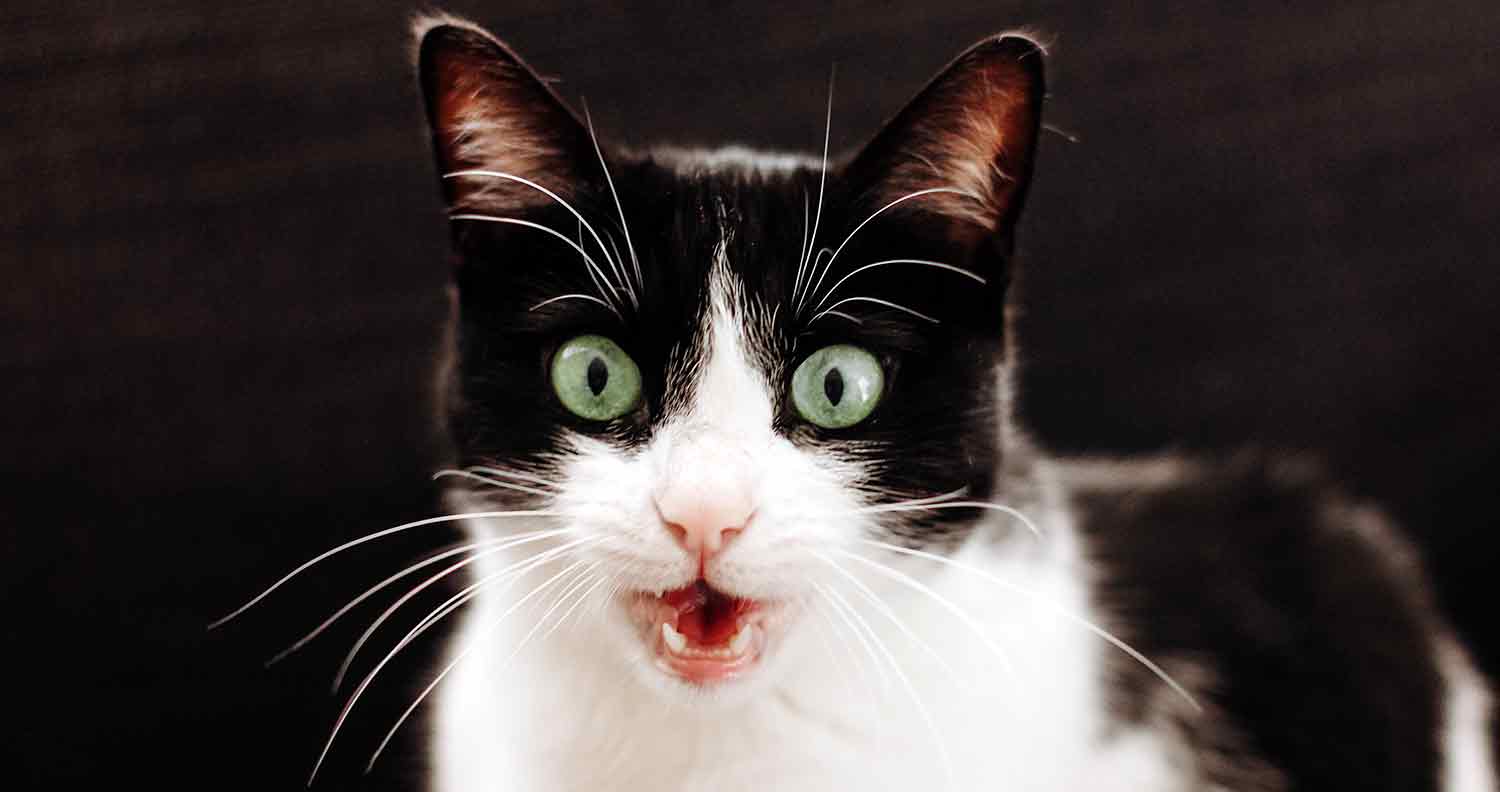
Cat's panting is actually a normal behavior in several situations and environments. Cats pant and experience rapid breathing when they are tired, overheated, or stressed.
More commonly, the pant disappears when the feline cools down or takes a rest.
In the more serious cases, a cat's panting may actually be a symptom of a disease or a medical issue.
These medical conditions include, Anemia, neurologic disorders, trauma, abdominal enlargement, and pain can also cause cats to pant.
Some cat breeds are much more susceptible to panting, either because of their respiratory anatomy or because of the nature of their hair coat.
These cat breeds include Himalayans and Persians. They have a much flatter face and more narrow nostrils,
Maine Coons and other long-haired breeds also suffer a little more with cat panting.
Just make sure you have to keep a careful eye on the behavior of your pet.
Especially in the heat.
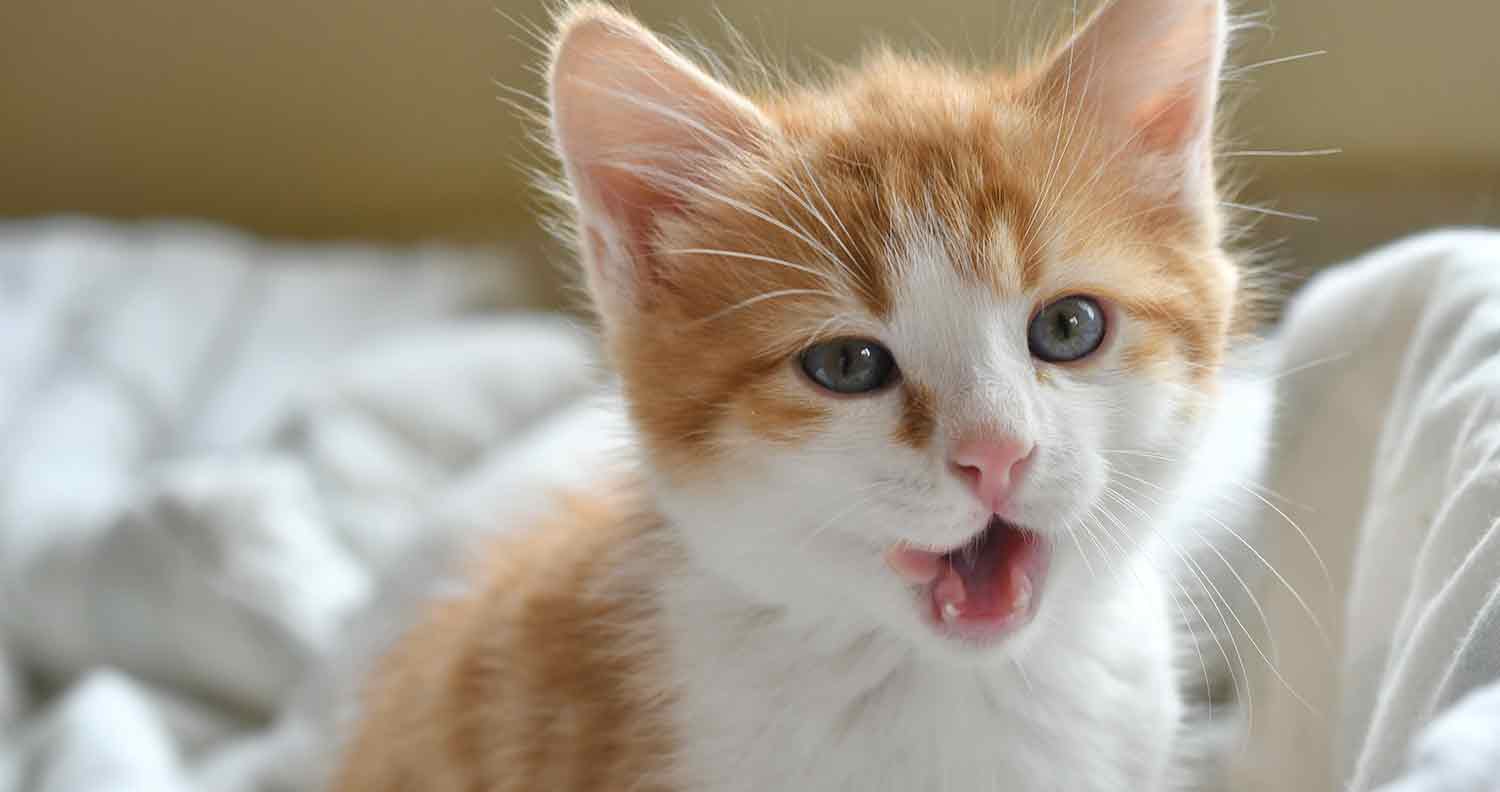
Read this next: Can a Cat have Down Syndrome?
Why Is My Cat Panting? (in short)
A cat’s normal breathing pattern should be very smooth and totally unlaboured. Cat Panting is usually a sign that something isn’t quite right with your cat.
In most cases, cats only breathe hard with their mouths open, panting, when they are extremely hot, stressed or an illness has set in.
Do Cats Pant?
When panting, cats keep their mouth open and stick their tongue partially out while inhaling and exhaling rapidly. Cats usually lay down whilst panting.
However, if your feline is worried about what happens around it, it will pant in a standing position.
Why Do Cats Pant? The Reasons:
1. Asthma
Asthma is a chronic respiratory disease characterized by inflamed lungs.
Similar to human asthma, feline asthma is triggered by stress and allergens. When these triggers are present, the cat may experience a cat asthma attack where it either coughs, wheezes or pants.
Cat Asthma could also cause an increased respiratory rate.
2. Pain
A cat in pain does an excellent job of hiding its struggle.
However, if you watch your feline carefully, you will notice some signs suggesting that it feels bad. Panting isn't necessarily pointing to pain. It may be just a normal response to physical activity as your cat is trying to catch its breath.
Be cautious though, if panting comes hand in hand with other symptoms such as aggressive behavior, high pulse rate, intense purring, lack of appetite, or difficulty walking, more likely your cat is hit by pain.
Seek veterinary help to identify the cause of pain and treat the underlying health issue.
3. Heart Issue
Cardiomyopathy is a common condition found in cats and is more common in certain breeds.
During Hydrothorax and Congestive heart failure, the heart muscle doesn't pump blood as powerfully as it should.
This leads to blood backing up and fluid accumulating in the lungs which affect the lungs' activity, causing panting.
4. Anemia
Red blood cells carry oxygen throughout the body.
When the body runs out of erythrocytes, the oxygen slows down and fails to reach all organs.
This condition is called Anemia and will have the cat panting and getting tired fast.
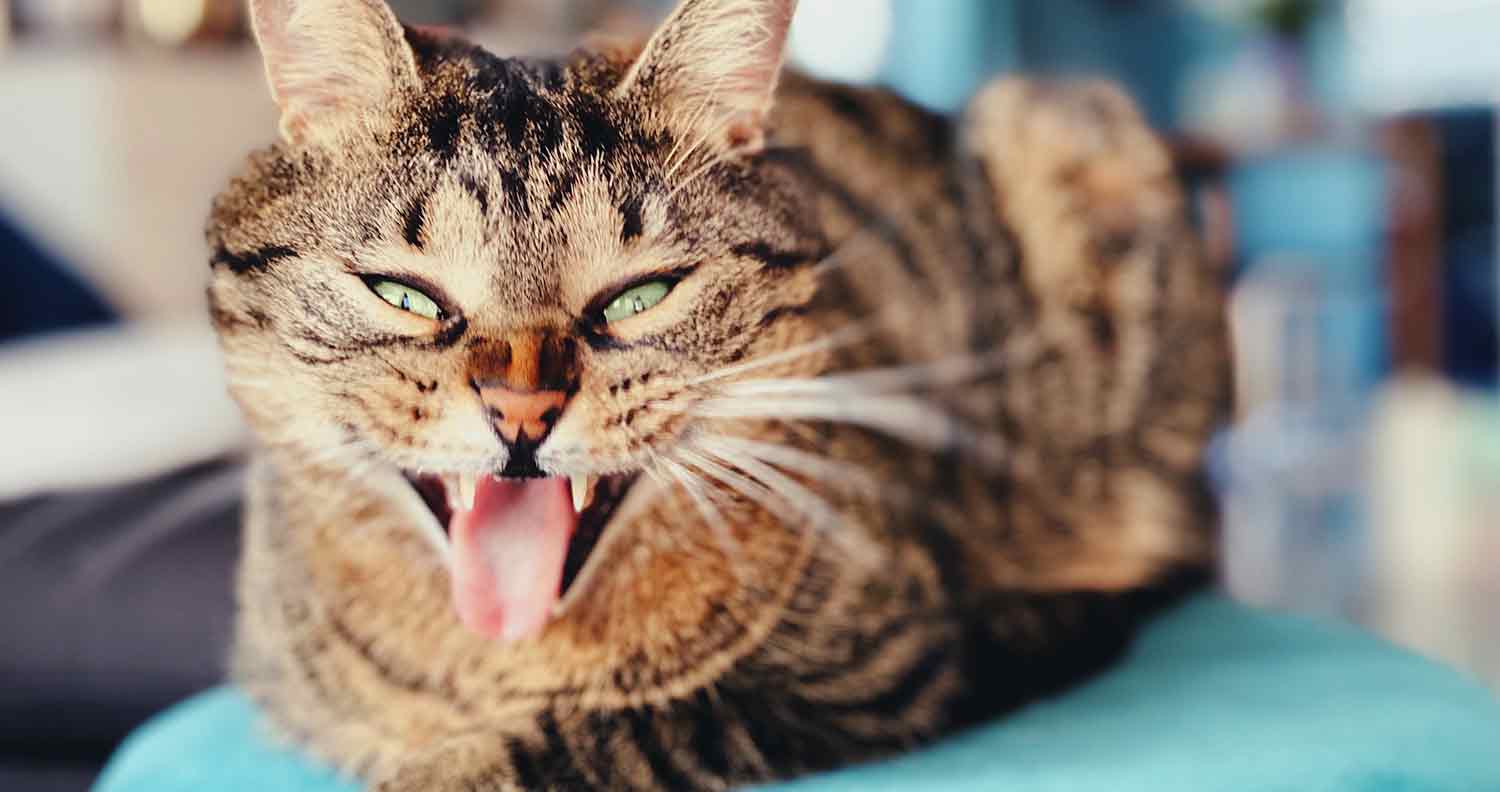
Read this next: Heart Disease in Cats: What You Need To Know
5. Respiratory Infection
Cats can be at risk of respiratory infections.
The symptoms include fever, coughing, sneezing, panting, and a stuffy nose. If you spot these symptoms in your cat, take it to the vet to get the infection treated before it leads to complications.
6. Heartworm
A heartworm is a parasite that invades a cat's heart or lungs and causes trouble. An infection with these parasites causes an illness called Heartworm Associated Respiratory Disease (HARD), characterized by wheezing, coughing, and panting.
While these worming symptoms might also link to a cold or asthma attack as well, you can't be certain it's HARD. You should keep an eye for other symptoms that appear as the heartworm disease quickly evolves.
They include lethargy, loss of appetite, avoiding social contact, and weight loss.
It is also important to ensure your cat is kept on a monthly heartworm preventative medication.
7. Stress
Cats have different reactions to stress.
Some are shaking and retreating, others are meowing loudly and panting. The stress is going to disappear as soon as its trigger is removed or after you have successfully calmed your cat down.
If your feline has experienced a trauma, such as abuse, rejection, or a scary situation, it may also start panting continuously. If home therapy doesn't work, visit a veterinarian to help your kitty get rid of the traumatic stress.
8. Cats Release Heat Differently
Heat exchange in cats is not the same as there human owners. Cats do not sweat through their pores that are all over their bodies.
Instead, they actually sweat through the pads on the bottom of their paws. Sometimes you can even see the little damp paw prints they leave behind.
Unfortunately, their paw pads are super small. This means that they cannot regulate their whole body temperature through their paws. This leads to cat panting. If they are hot, cats will pant to get rid of excess heat via evaporation.
9. Strenuous Exercise
Even though cats are remarkably lazy and love their sleep time they can also spring into life at times and overdo things.
So, Strenuous exercise may be another cause of cat panting.
Rest assured, once your cat has had a chance to rest, relax, slow up and cool down, this sort of panting should subside.
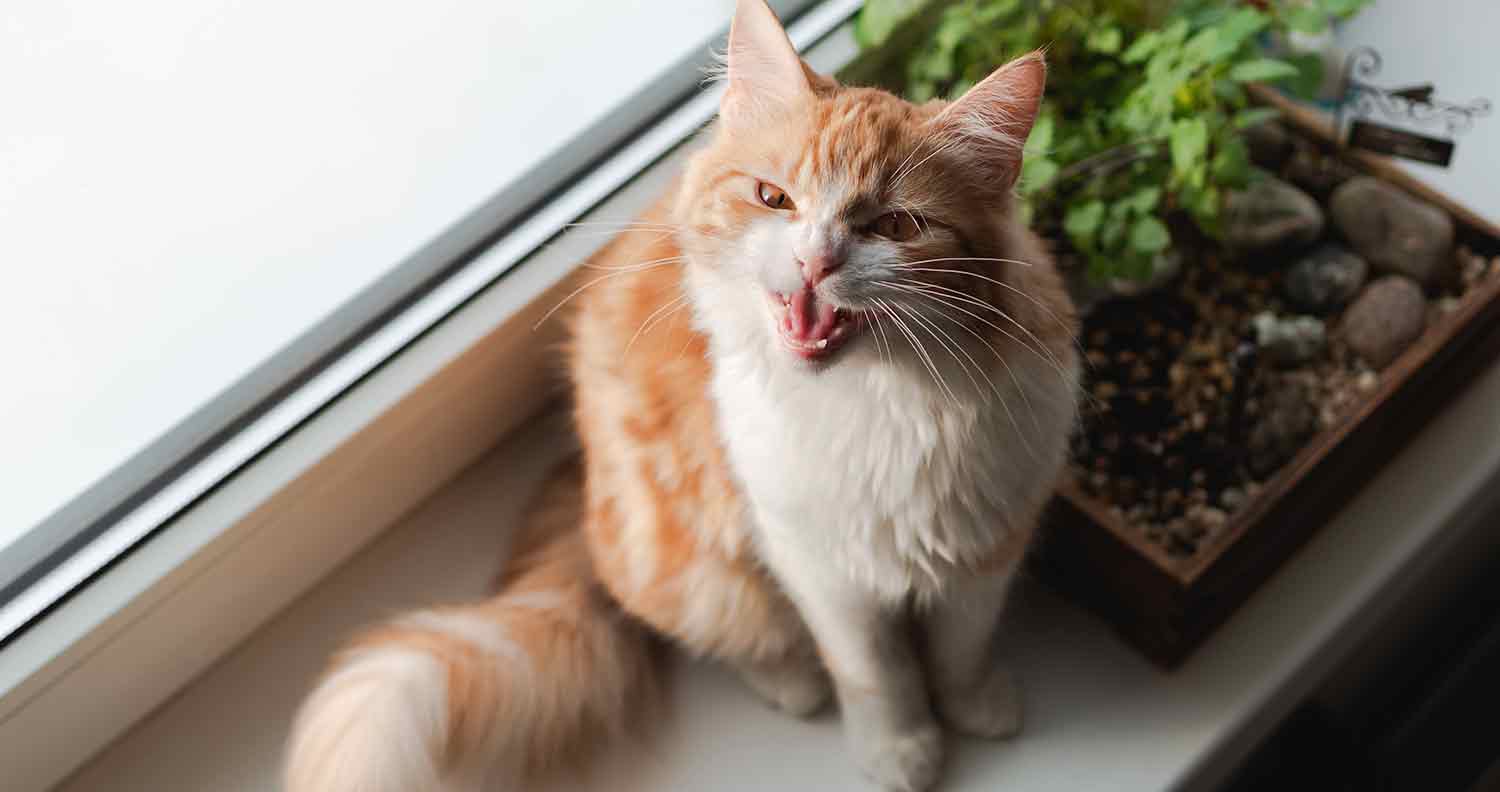
Read this next: Food Allergies in Cats: What to Look Out For
What to Do if Your Cat is Panting Like a Dog
If your cat has been engaged in intense physical activity, panting shouldn't be a cause for concern.
Allow it to rest and the panting will be quickly replaced by normal breathing. If your kitty has spent too much time in a hot place, it may get overheated and start panting.
If that happens, take it to a cooler room and give it water.
Once cooled down, your cat will get back to a normal breathing pace.
If your cat is panting due to stress, do your best to remove the stress trigger. The trigger may be a dog, a scary noise, or an unfamiliar guest.
Since it can be difficult to tell your guest to leave, you can try to calm your cat down by petting, playing with it, or giving it cat treats.
Also, you can give your puss a separate room where the stress factor doesn't have access. If panting comes along with the symptoms of the above-mentioned disease, book an appointment with a vet.
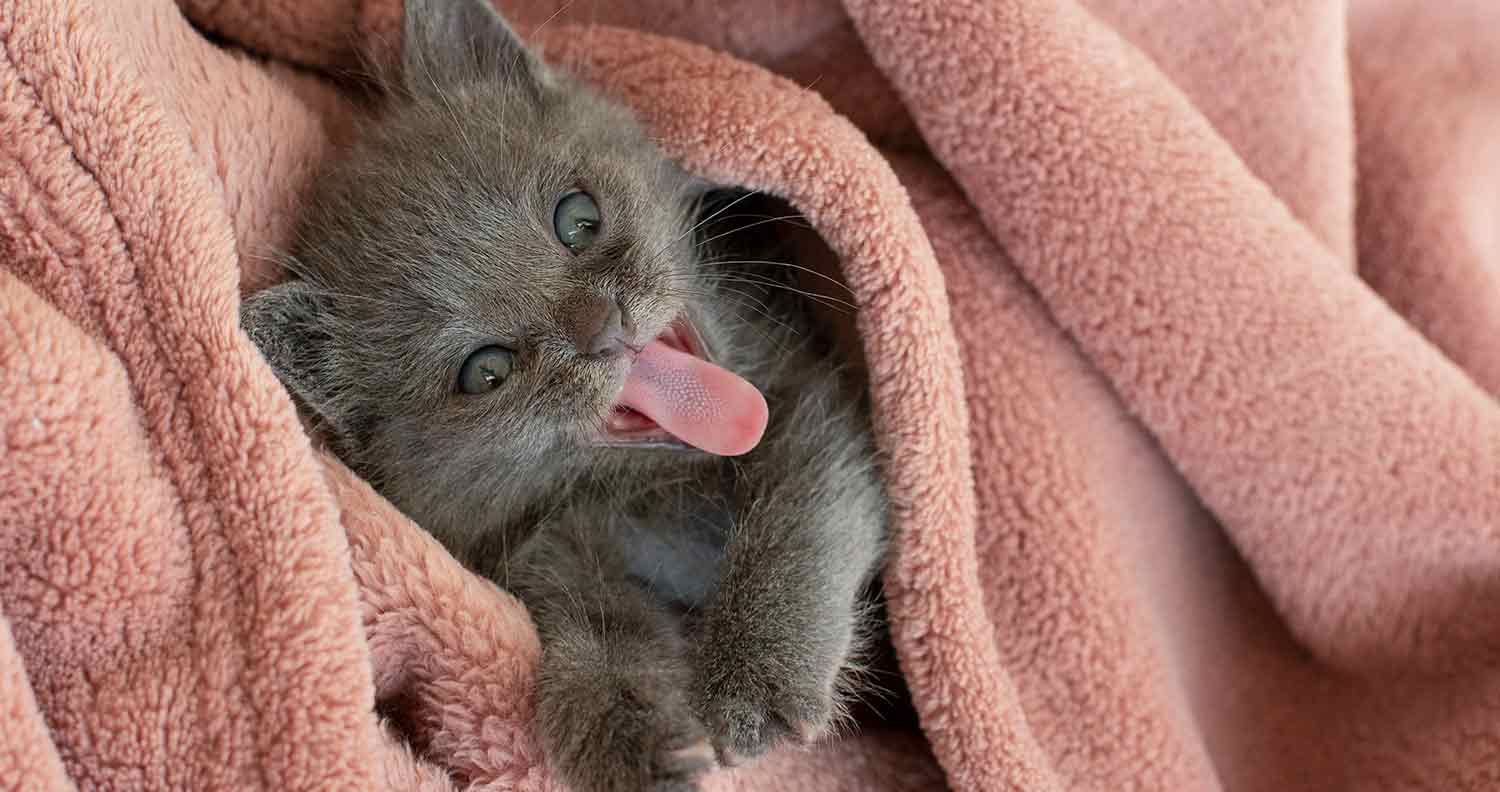
Read this next: Do Siamese Cats Shed A Lot? (Are Siamese Cats Hypoallergenic?)
Is My Cats Panting Serious?
Panting from physical activity or overheating is a natural response of the cat's body you shouldn't be worried about.
However, you should become alert if your cat is panting heavily and constantly and has other symptoms as it might indicate a serious health condition.
Your cat may need emergency care, prompt veterinary care and medications. Do not hesitate in getting them to a veterinary clinic as swiftly as possible.
Call your vet if your cat displays the following symptoms:
Is My Cats Panting Serious?
Once your furry friend starts to pant, identify all secondary symptoms it exhibits and communicate them to your veterinary.
It will help him or her to diagnose the underlying disease easier and provide a suitable treatment.
Your vet may provide one of the following treatments:
Why Is My Cat Panting? The Verdict
We hope this answers your 'why is my cat panting' question.
Yes, I totally agree with you, it does look a bit odd and freaky when you see your cat pant. It really doesn't seem like very natural behavior. Panting is definitely seen as a far more dog-like behavior.
Just don't fret. As you can see here, cats do pant due to a variety of reasons.
The good news is that in the majority of cat panting cases they will be just fine as long as they can relax, chill out and cool down.
Be cautious though.
Anything that you feel is more excessive or drawn out over time, we would seriously suggest getting them to a vet for a check-up and possible medical supportive care.
Share:

